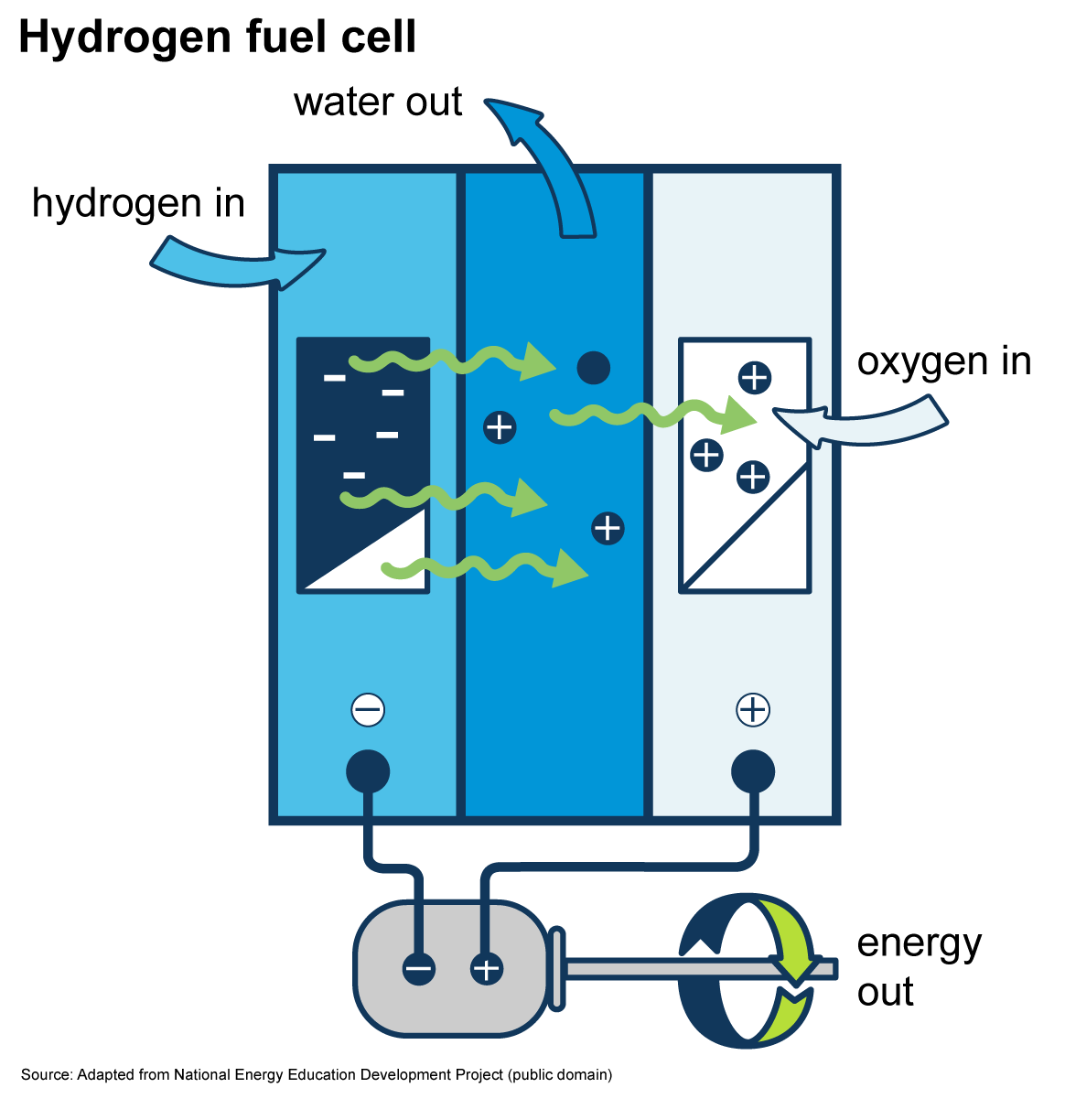Hydrogenfuelcell
Hydrogen fuel cells produce electricity
Hydrogen fuel cells produce electricity by combining hydrogen and oxygen atoms. The hydrogen reacts with oxygen across an electrochemical cell similar to that of a battery to produce electricity, water, and small amounts of heat.
Many different types of fuel cells are available for a wide range of applications. Small fuel cells can power laptop computers and even cell phones, and military applications. Large fuel cells can provide electricity for backup or emergency power in buildings and supply electricity in places that are not connected to electric power grids.
As of the end of October 2020, there were about 161 operating fuel cells at 108 facilities in the United States with a total of about 250 megawatts (MW) of electric generation capacity. The largest is the Red Lion Energy Center in Delaware with about 25 MW total electric generation capacity, which uses hydrogen produced from natural gas to operate the fuel cells.

